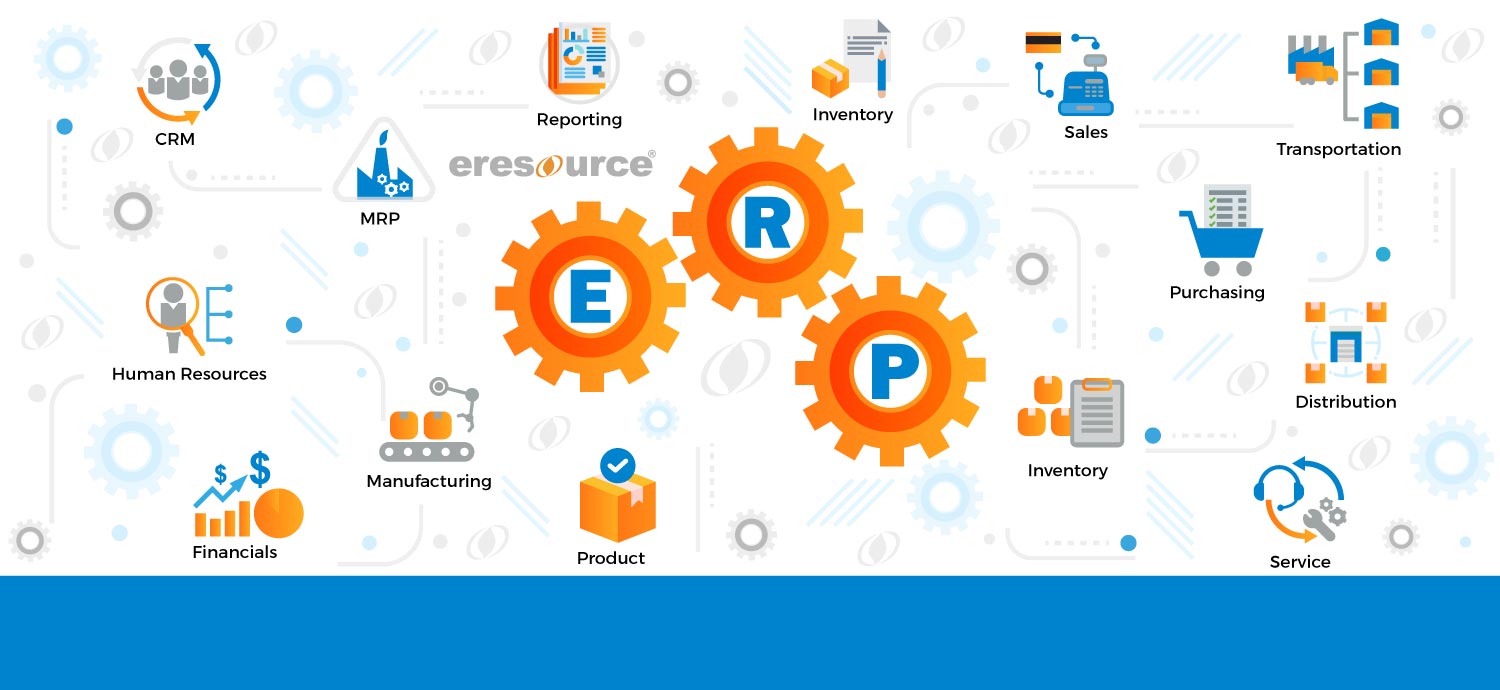Manufacturing companies involved in producing different products use industry-specific ERP systems. The ERP industry commenced with MRP (manufacturing requirements planning) and grew to its current state, delivering enterprise requirements planning.
Manufacturing is a broad concept. Process manufacturing can range from a refinery that produces gasoline to a bakery that makes bread and other manufacturing units making different kinds of products. It’s crucial for manufacturers to implement an ERP system with the manufacturing ERP modules to support their business needs, including managing and tracking workflow, inventory, logistics, order or asset management, etc.
This article specifies essential manufacturing modules that a manufacturer should look at in the ERP system.
- Operations and Production Management
Operations management is the heart of a manufacturing company. Every manufacturer strives to produce products that meet target customers’ needs and preferences. Moreover, these products must be manufactured on schedule for timely delivery. Material and workers must be available so that operations can achieve the schedule. Financial management is also critical to pay suppliers and employees at the right time.
An ERP for Manufacturing industry featuring operations and production management schedules can integrate materials, people, and finances to streamline operations and production processes.
- Inventory Control
Inventory control is the critical cost factor crucial for process and discrete manufacturers to execute. Warehouse storage costs and costs associated with the movement are two essential components of inventory costs. Effective inventory management and control can help manufacturers meet customer demand with seamless production.
However, inventory can also become scrap over time, with a customer’s need becoming obsolete or a product’s purpose evolving. As a result, inventory management and control modules in the ERP system can help manufacturers avoid unnecessary inventory and costs associated with inventory storage and movement.
- Sales and Marketing
ERP modules are critical to providing accurate demand forecasts and managing sales and marketing campaigns. For instance, the ERP sales module can provide functionalities from contacting existing and potential customers to tracking sales invoices and sanctioning returns.
On the other hand, the marketing module can provide crucial insights into sales trends over specific periods and the impact of marketing campaigns via comprehensive reports. These insights further aid manufacturers in making accurate sales forecasts and provide feedback for product feature enhancements.
- Order Management
It becomes easier for the customers and sales teams to track the orders’ status and assess production schedules based on customer orders. It further ensures the management of supply and demand. The order management module of an ERP system basically improves bidirectional communication with customers regarding delivery options, delivery time, and package tracking.
- Customer Relationship Management (CRM)
In this competitive age, most customer engagements are ongoing rather than just one-time sales. With CRM Module, manufacturing companies can effectively manage communications with the target customers by maintaining a record of customer conversations, requests, and outbound communications.
With every interaction with the customer being documented, manufacturers can have a firmer grasp on customer needs and, thus, formulate strategies to keep the engagement ongoing. Moreover, CRMs are powerful tools that enable managers to understand the success of sales and marketing campaigns.
- Project Management
The project management ERP module is critical for make-to-order products. With this module in place, managers can plan and track resources to meet customer demands by managing materials, machinery, and accounting for non-plant resources, including people and information.
- Vendor Management
Managing the suppliers of components and raw materials is as essential as the rest of the value chain for manufacturing units that often deal with multiple vendors offering a variety of quantity, quality, and pricing alternatives.
Vendor management ERPs allow manufacturers to keep track of multiple supplier options rating them from products’ quality to their pricing and delivery schedules. Moreover, a vendor management system can protect the manufacturers from order non-fulfilment.
Summing up it all!
The manufacturing chain constitutes various moving parts, traditionally brought together by high manual intervention. Several manufacturing ERP modules can enhance the efficiency of this value chain.
An ERP system designed for the manufacturing industry can significantly improve a manufacturing unit’s productivity from receiving purchase orders, inventory management and production management to sales and marketing management and shipment. Employees can access the information required for future planning and making vital business decisions with these solutions. In addition, ERP manufacturing modules can automate tasks, minimize errors, and free up employees to focus on more strategic work.
Also Read – Best ERP Software for Construction in India
Categories
Register for Free Demo!
Recent Post
-

eresource ERP 360 - an
11th Apr 2019 -

A competitive ERP system for
17th Apr 2019 -

Auto components manufacturing industry has
17th Apr 2019 -

Make the best use of
17th Apr 2019






